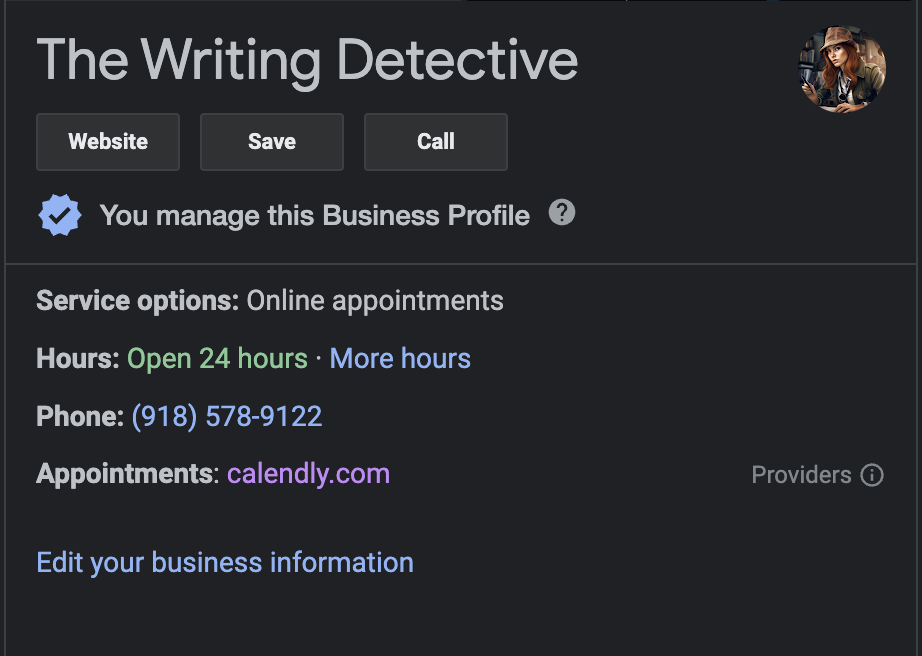In today’s digital age, customers are increasingly using local search to find the best products and services near them. In fact, 46% of all Google searches are looking for local information. If your business isn’t optimized for local SEO, you could be missing out on potential customers ready to shop in your area. Local SEO, or local search engine optimization, is the process of improving search engine visibility for local businesses, primarily those with brick-and-mortar locations. By following local SEO best practices, businesses can improve organic traffic from searches performed by customers in nearby areas.

In this comprehensive guide, we will cover the key components of an effective local SEO strategy, provide tips on optimizing your Google My Business profile, discuss the impact of customer reviews on local SEO rankings, highlight common mistakes businesses make when implementing local SEO, and share how to stay updated with the latest local SEO trends and algorithm changes.
Table of Contents
- Understanding Local SEO
- Key Components of an Effective Local SEO Strategy
- Optimizing Your Google My Business Profile
- The Impact of Customer Reviews on Local SEO Rankings
- Common Mistakes in Implementing Local SEO
- Tips for Hiring Freelancers for Local SEO Services
- Success Stories: Local SEO and Business Growth
- Staying Updated with Local SEO Trends and Algorithm Changes
- Conclusion
1. Understanding Local SEO
Local SEO focuses on optimizing a website to be found in local search results. It involves various strategies such as creating localized content, optimizing on-page elements, building local citations, and acquiring relevant inbound links. The goal is to improve search engine visibility for businesses serving specific towns, cities, regions, and even states.
Local search engines rely on signals like local content, social profile pages, links, and citations to provide the most relevant local results to users. By leveraging these signals, businesses can position their products and services to local prospects and customers who are actively searching for them.
2. Key Components of an Effective Local SEO Strategy
To develop an effective local SEO strategy, businesses should focus on the following key components:
2.1 Keyword Research
Conduct thorough keyword research to identify the search terms customers in your local area are using to find products or services similar to yours. Use keyword research tools to uncover valuable keywords with high search volume and low competition.
2.2 On-Page Optimization
Optimize your website’s URL, title tags, headers, meta descriptions, and content with relevant keywords. Ensure your website provides a seamless user experience, is mobile-friendly, and loads quickly.
2.3 Google My Business
Optimize your Google My Business (GMB) profile by creating and verifying your business page. Add accurate and consistent information, including your business name, address, phone number, website, and business hours. Utilize Google Posts to engage with customers and encourage them to leave reviews.

2.4 Local Citations and Directories
Optimize online directories and citations by ensuring consistent and accurate business information across different platforms. Submit your business information to popular directories such as Yelp, Yellow Pages, and TripAdvisor.
2.5 Link Building
Acquire inbound links from relevant and authoritative websites to increase your website’s credibility and improve local search rankings. Reach out to local influencers, bloggers, and businesses for potential link-building opportunities.
2.6 Local Content Creation
Create localized content that caters to the interests and needs of your local audience. Develop blog posts, articles, and guides that provide valuable information and insights related to your industry or niche.
2.7 Social Media Engagement
Engage with your audience on social media platforms and regularly post updates, promotions, and events on your GMB profile. Encourage customers to share their experiences and leave reviews on your social media pages.
2.8 User Reviews and Ratings
Customer reviews and star ratings play a crucial role in local SEO rankings. Encourage satisfied customers to leave positive reviews, respond authentically to reviews (specifying location), and address any negative feedback promptly and professionally.
2.9 Local Schema Markup
Implement local schema markup on your website to provide search engines with more detailed information about your business, such as your address, phone number, business hours, and customer reviews.
2.10 Monitoring and Analytics
Regularly monitor your local SEO efforts using tools like Google Analytics and Google Search Console. Analyze key metrics such as organic traffic, keyword rankings, and customer engagement to assess the effectiveness of your local SEO strategy.
3. Optimizing Your Google My Business Profile
Google My Business is a powerful tool for local search optimization. To optimize your GMB profile, follow these tips:
3.1 Create and Verify Your GMB Page
Create a Google My Business page for your business and verify it to gain access to additional features and insights.
3.2 Provide Accurate and Consistent Information
Ensure that your business name, address, and phone number (NAP) are consistent across all online platforms, including your website, directories, and social media profiles.
3.3 Add Relevant Categories and Attributes
Select the most relevant categories and attributes that describe your business to improve its visibility in local search results. Include information such as your business hours, payment methods accepted, and any unique features or offerings.
3.4 Use Google Posts
Utilize Google Posts to share updates, promotions, events, and other relevant information with your audience. This helps to engage customers and attract more traffic to your GMB profile.
3.5 Encourage Customer Reviews
Encourage customers to leave reviews on your GMB profile by providing excellent service and requesting feedback. Respond to reviews promptly and professionally, showing your appreciation for positive feedback and addressing any concerns from negative reviews.
3.6 Add High-Quality Photos
Upload high-quality photos of your business, products, and services to showcase your offerings and create a visual representation of your brand. This helps to attract potential customers and make a positive impression.
3.7 Monitor Insights and Analytics
Regularly monitor the insights and analytics provided by Google My Business to gain valuable information about how customers are finding and interacting with your business. Use these insights to make data-driven decisions and optimize your local SEO strategy.
4. The Impact of Customer Reviews on Local SEO Rankings
Customer reviews have a significant impact on local SEO rankings. Positive reviews indicate to search engines and potential customers that your business provides quality products or services. Here are some ways customer reviews influence local SEO rankings:
4.1 Increased Online Visibility
Businesses with a higher number of positive reviews are more likely to appear in the Map Pack and organic search results. Positive reviews can help improve your local search rankings and increase your online visibility.
4.2 Trust and Credibility
Customer reviews contribute to building trust and credibility for your business. Positive reviews act as social proof, assuring potential customers that your business is reliable and provides a satisfactory customer experience.
4.3 Keyword Relevance
Customer reviews often contain keywords related to your business, products, or services. These keywords can help improve your local search rankings when potential customers use similar keywords in their search queries.
4.4 Click-Through Rates
Businesses with positive reviews and high ratings tend to attract more clicks from potential customers. Higher click-through rates indicate to search engines that your business is relevant and valuable, resulting in improved local search rankings.
4.5 Review Quantity and Diversity
The quantity and diversity of customer reviews also play a role in local SEO rankings. Having a good mix of recent reviews and reviews from various sources (such as Google, Yelp, and Facebook) can help improve your business’s visibility in local search results.
To leverage the impact of customer reviews on local SEO rankings, businesses should actively encourage satisfied customers to leave reviews and respond to reviews promptly and professionally.
5. Common Mistakes in Implementing Local SEO
While local SEO can be highly effective, businesses often make some common mistakes when implementing their strategies. Here are a few mistakes to avoid:
5.1 Inconsistent NAP Information
Inaccurate or inconsistent name, address, and phone number (NAP) information across online platforms can confuse search engines and negatively impact your local search rankings. Ensure that your NAP information is consistent and up to date.
5.2 Neglecting Online Directories
Online directories play a crucial role in local SEO. Neglecting to optimize your business listings on popular directories such as Yelp, Yellow Pages, and TripAdvisor can result in missed opportunities for exposure and potential customers.
5.3 Ignoring Local Citations
Local citations, which are mentions of your business’s NAP information on other websites, are essential for local SEO. Ignoring the importance of local citations can hinder your business’s visibility in local search results.
5.4 Lack of Localized Content
Creating localized content is vital for targeting local customers. Neglecting to develop blog posts, articles, and guides that cater to the interests and needs of your local audience can limit your local SEO success.
5.5 Failure to Monitor and Analyze Results
Effective local SEO requires ongoing monitoring and analysis of key metrics. Neglecting to track the performance of your local SEO efforts can make it challenging to identify areas for improvement and optimize your strategy.
By avoiding these common mistakes, businesses can enhance their local SEO efforts and improve their chances of ranking higher in local search results.

6. Tips for Hiring Freelancers for Local SEO Services
When looking to hire freelancers for local SEO services, consider the following tips:
6.1 Define Your Goals and Expectations
Clearly define your goals and expectations for the freelancer. Communicate your specific requirements, desired outcomes, and the scope of work to ensure both parties are on the same page.
6.2 Review Portfolios and Experience
Examine the freelancer’s portfolio and past experience in local SEO. Look for evidence of successful projects, positive client feedback, and a solid understanding of local search optimization techniques.
6.3 Check References and Reviews
Request references from previous clients and check online reviews or testimonials about the freelancer’s work. This helps to validate their credibility and ensures they have a track record of delivering quality results.
6.4 Assess Communication and Collaboration Skills
Effective communication and collaboration are essential when working with freelancers. Assess their responsiveness, clarity in communication, and ability to work collaboratively to ensure a smooth working relationship.
6.5 Discuss Pricing and Contract Terms
Have a detailed discussion about pricing and contract terms before hiring a freelancer. Clarify payment arrangements, project timelines, and any additional fees or expenses to avoid misunderstandings later on.
By following these tips, businesses can find and hire freelancers who are skilled in local SEO and can contribute to their overall digital marketing success.
7. Success Stories: Local SEO and Business Growth
Local SEO efforts can lead to significant business growth. Here’s a success story that demonstrates the impact of local SEO on a business’s success:

At XYZ Plumbing, a local plumbing business in Cityville, implementing a robust local SEO strategy resulted in a 50% increase in organic traffic and a 30% boost in customer inquiries within six months. By optimizing their Google My Business profile, creating localized content, and actively engaging with customers through online reviews, XYZ Plumbing was able to establish a strong online presence and attract more local customers. The success story of XYZ Plumbing highlights the power of local SEO in driving business growth and increasing revenue.
8. Staying Updated with Local SEO Trends and Algorithm Changes
To stay updated with the latest local SEO trends and algorithm changes, follow these strategies:
8.1 Industry Publications and Blogs
Regularly read industry publications and blogs that focus on local SEO. These sources often provide insights, best practices, and updates on the latest trends and algorithm changes.
8.2 Attend Webinars and Conferences
Participate in webinars and conferences dedicated to local SEO. These events bring together industry experts who share their knowledge and discuss emerging trends and strategies.
8.3 Join Local SEO Communities
Join online communities and forums where professionals discuss local SEO. Engage in discussions, ask questions, and share experiences to stay informed about the latest developments in the field.
8.4 Follow Local SEO Experts and Influencers
Follow local SEO experts and influencers on social media platforms. Their posts, updates, and insights can provide valuable information about the latest trends, algorithm changes, and best practices.
8.5 Experiment and Test
Continuously experiment and test different local SEO strategies and tactics to see what works best for your business. Analyze the results and adapt your approach based on the insights gained from these experiments.
By actively staying updated and adapting to the ever-evolving landscape of local SEO, businesses can stay ahead of the competition and maximize the potential of their local search optimization efforts.
Conclusion
Local SEO plays a crucial role in helping businesses reach potential customers who are actively searching for products and services in their local area. By implementing an effective local SEO strategy, optimizing their Google My Business profile, leveraging customer reviews, and staying updated with the latest trends, businesses can improve their online visibility, attract more local customers, and drive significant business growth. Remember, local SEO is an ongoing process that requires regular monitoring, analysis, and adaptation to stay ahead in the local search landscape. With the right strategies and a commitment to excellence, businesses can unlock the full potential of local SEO and thrive in their local markets.
Now it’s time to put these insights into action and take your local SEO efforts to the next level. Get started today and watch your business flourish in the local search results!





